
In mathematics and computer science, an algorithm is a finite sequence of well-defined, computer-implementable instructions, typically to solve a class of problems or to perform a computation. Algorithms are always unambiguous and are used as specifications for performing calculations, data processing, automated reasoning, and other tasks.
In computability theory, the Church–Turing thesis is a hypothesis about the nature of computable functions. It states that a function on the natural numbers can be calculated by an effective method if and only if it is computable by a Turing machine. The thesis is named after American mathematician Alonzo Church and the British mathematician Alan Turing. Before the precise definition of computable function, mathematicians often used the informal term effectively calculable to describe functions that are computable by paper-and-pencil methods. In the 1930s, several independent attempts were made to formalize the notion of computability:
In mathematics and computer science, the Entscheidungsproblem is a challenge posed by David Hilbert and Wilhelm Ackermann in 1928. The problem asks for an algorithm that considers, as input, a statement and answers "Yes" or "No" according to whether the statement is universally valid, i.e., valid in every structure satisfying the axioms.

Stephen Cole Kleene was an American mathematician. One of the students of Alonzo Church, Kleene, along with Rózsa Péter, Alan Turing, Emil Post, and others, is best known as a founder of the branch of mathematical logic known as recursion theory, which subsequently helped to provide the foundations of theoretical computer science. Kleene's work grounds the study of computable functions. A number of mathematical concepts are named after him: Kleene hierarchy, Kleene algebra, the Kleene star, Kleene's recursion theorem and the Kleene fixed-point theorem. He also invented regular expressions in 1951 to describe McCulloch-Pitts neural networks, and made significant contributions to the foundations of mathematical intuitionism.

Haskell Brooks Curry was an American mathematician and logician. Curry is best known for his work in combinatory logic. While the initial concept of combinatory logic was based on a single paper by Moses Schönfinkel, Curry did much of the development. Curry is also known for Curry's paradox and the Curry–Howard correspondence. There are three programming languages named after him, Haskell, Brook and Curry, as well as the concept of currying, a technique used for transforming functions in mathematics and computer science.
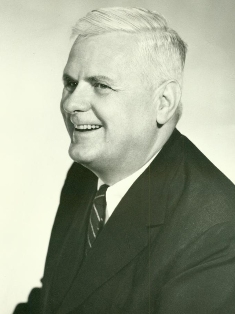
Alonzo Church was an American mathematician and logician who made major contributions to mathematical logic and the foundations of theoretical computer science. He is best known for the lambda calculus, Church–Turing thesis, proving the unsolvability of the Entscheidungsproblem, Frege–Church ontology, and the Church–Rosser theorem. He also worked on philosophy of language.
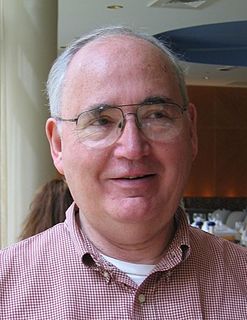
Dana Stewart Scott is an American logician who is the emeritus Hillman University Professor of Computer Science, Philosophy, and Mathematical Logic at Carnegie Mellon University; he is now retired and lives in Berkeley, California. His work on automata theory earned him the ACM Turing Award in 1976, while his collaborative work with Christopher Strachey in the 1970s laid the foundations of modern approaches to the semantics of programming languages. He has worked also on modal logic, topology, and category theory.
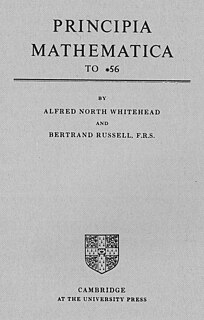
Metamathematics is the study of mathematics itself using mathematical methods. This study produces metatheories, which are mathematical theories about other mathematical theories. Emphasis on metamathematics owes itself to David Hilbert's attempt to secure the foundations of mathematics in the early part of the 20th century. Metamathematics provides "a rigorous mathematical technique for investigating a great variety of foundation problems for mathematics and logic". An important feature of metamathematics is its emphasis on differentiating between reasoning from inside a system and from outside a system. An informal illustration of this is categorizing the proposition "2+2=4" as belonging to mathematics while categorizing the proposition "'2+2=4' is valid" as belonging to metamathematics.
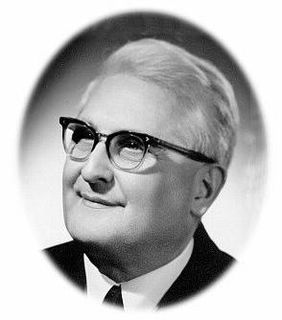
László Kalmár was a Hungarian mathematician and Professor at the University of Szeged. Kalmár is considered the founder of mathematical logic and theoretical computer science in Hungary.

John Charles Reynolds was an American computer scientist.

Frank Pfenning is a professor of computer science, adjunct professor in the department of philosophy, and head of the Computer Science Department at Carnegie Mellon University. He received his Ph.D. from the Carnegie Mellon University Department of Mathematics in 1987, for his dissertation entitled Proof Transformations in Higher-Order Logic. He was a student of Peter B. Andrews.
The ACM–IEEE Symposium on Logic in Computer Science (LICS) is an annual academic conference on the theory and practice of computer science in relation to mathematical logic. Extended versions of selected papers of each year's conference appear in renowned international journals such as Logical Methods in Computer Science and ACM Transactions on Computational Logic.

Abbas Edalat is a British-Iranian academic who is a professor of computer science and mathematics at the Department of Computing, Imperial College London and a political activist. In a 2018 letter to The Guardian, 129 experts in computer science, mathematics and machine learning described him as "a prominent academic, making fundamental contributions to mathematical logic and theoretical computer science" Edalat also founded SAF and CASMII, a campaign against sanctions and military intervention in Iran.

Moshe Ya'akov Vardi is an Israeli mathematician and computer scientist. He is a Professor of Computer Science at Rice University, United States. He is University Professor, the Karen Ostrum George Professor in Computational Engineering, Distinguished Service Professor, and Director of the Ken Kennedy Institute for Information Technology. His interests focus on applications of logic to computer science, including database theory, finite-model theory, knowledge in multi-agent systems, computer-aided verification and reasoning, and teaching logic across the curriculum. He is an expert in model checking, constraint satisfaction and database theory, common knowledge (logic), and theoretical computer science.
The history of the Church–Turing thesis ("thesis") involves the history of the development of the study of the nature of functions whose values are effectively calculable; or, in more modern terms, functions whose values are algorithmically computable. It is an important topic in modern mathematical theory and computer science, particularly associated with the work of Alonzo Church and Alan Turing.
Rajeev Alur is the Zisman Family Professor in the Department of Computer and Information Science at the University of Pennsylvania, United States.
The Machtey Award is awarded at the annual IEEE Symposium on Foundations of Computer Science (FOCS) to the author(s) of the best student paper(s). A paper qualifies as a student paper if all authors are full-time students at the date of the submission. The award decision is made by the Program Committee.
(Nels) David Nelson, an American mathematician and logician, was born on January 2, 1918 in Cape Girardeau, Missouri. Upon graduation from the Ph.D. program at the University of Wisconsin- Madison, Nelson relocated to Washington, D.C. Nelson remained in Washington, D.C. as a Professor of Mathematics at The George Washington University until his death on August 22, 2003.
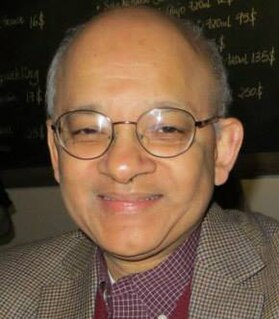
Prakash Panangaden is an American/Canadian computer scientist noted for his research in programming languages, concurrency theory, Markov processes and duality theory. Earlier he worked on quantum field theory in curved space-time and radiation from black holes. He is the founding Chair of the ACM Special Interest Group on Logic and Computation.
David Lansing Dill is a computer scientist and academic noted for contributions to formal verification, electronic voting security, and computational systems biology. He is the Donald E. Knuth Professor, Emeritus, in the School of Engineering and Professor, Emeritus, of Computer Science at Stanford University.











